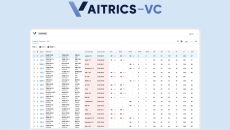predictive AI
The model could be deployed as a decision support tool in emergency departments.
A Singaporean startup leverages Asian-specific databases in making heart disease risk assessments.
The AI models only utilise wearable sleep and circadian rhythm data to analyse patterns driving mood disorders.
This marks AITRICS's first foray into Southeast Asia, with applications for regulatory clearance in Indonesia and Malaysia underway.
It has shown 96% accuracy in predicting fall risks in over 70,000 outpatients in Japan.
Its AI model can predict the accumulation of amyloid-beta protein, a major Alzheimer's biomarker.
It will commence operations in 2024 by releasing a predictive algorithm for early dementia diagnosis.
The technology uses heart rate variability measurements to assess the severity of sepsis in ED patients.
The AI model still has a modest prediction accuracy and is slated for a wider clinical trial soon.
They have used data from wearable devices to measure a person's risk of depression.




